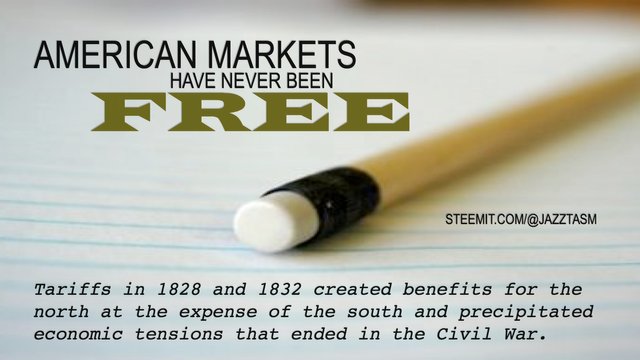America's “Free” Market: Tariffs and the Civil War

You might think that slavery was the major issue of the Civil War. But it wasn't the only issue. In 1828, after passing many tariffs in a row, Congress enacted the Tariff of Abominations – the highest one to date. And then in 1832, an even higher tariff was passed.
The purpose of these tariffs was to protect certain industries in the northern states like those producing wool and iron. As a result, people in the southern states were hurt twice by these tariffs. First, they had to pay about 40 percent more for their imported goods from Britain. And because the tariff was also costing Britain money, southerners weren't able to export as much of their cotton to Britain.
It was these tensions between the northern and southern states that played a role in the Civil War that finally erupted 30 years later. In fact, South Carolina started amassing weapons to fight the tariff passed in 1832, though Congress backed down. But tensions between north and south didn't go away completely, as history tells us, and tariffs and protections of northern industry from competition were major reasons why.

Where did Lincoln stand on all this? Was he trying to downplay the problems relating to tariffs? All we've ever been told is that the civil war was about slavery.